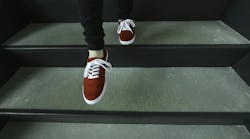Am I stuck in the op? Careers outside the dental hygiene operatory
It’s Friday morning and you can’t wait for the weekend and two days of no teeth talk, no back talk, no scaling, and no frustration waiting for exams. Your schedule is often back-to-back prophys, all day long. “Is this all there is?” you think. Day after day of scaling teeth, trying and failing to get through to patients, turning over your room, and starting again. It’s one long Groundhog Day.
Have you ever thought like this? After all the grueling work of hygiene school, it can be alarming to think that maybe you’ve chosen the wrong career. But it doesn’t have to be this way! To inject life back into your career, I’ll explore dental hygiene opportunities outside the operatory.
Different ways to use your dental hygiene knowledge
There are many unique locales in which to practice dental hygiene. Policies are different state by state, but most have opportunities to practice in nursing homes and special care facilities to treat patients who are unable to leave their homes.
Many of those in correctional facilities need treatment as well. Mobile clinics have been set up countrywide to provide preventive and restorative dental treatment to underserved populations—remote areas where dental treatment is not readily available, care is too expensive, or reliable transportation is unavailable for patients in need.1 Engaging with these populations can be extremely rewarding, making a positive difference and leading to healthier outcomes.
Another avenue is to visit schools and various educational centers to teach students about oral health care. During these visits, basic oral hygiene home care is discussed, and screenings can be incorporated to assess any need for treatment or intervention.
Share your hygiene knowledge
Have a knack for writing? Even if you don’t, writing articles for websites or print publications can be an excellent way to get out of the operatory and into professional writing. Websites and publications usually proofread your work, so being a great writer is not a prerequisite. You may not be compensated for your work at first, but consistency, reliability, and excellent research skills will elevate your work to a point where a company may sponsor you to write for them.
What can you write about? There are infinite ideas out there on every dental subject possible. In the health care and science world, information becomes dated and new research is constantly being conducted. No one has your exact viewpoint, and no one else can share your experiences!
My next words may cause you to skip this part: public speaking. The idea of speaking publicly may bring on sweaty palms, anxiety, and a quickening pulse. But someone has to do it! If public speaking interests you, securing professional speaking engagements can be a bit trickier than submitting written work.
Take these three words to heart—network, network, network! (OK, one word, but it cannot be emphasized enough.) Attend tradeshows and conferences, and yes, walk up to people you don’t know, even though this can be intimidating. Putting your name out there and letting others know your goals is necessary to book speaking engagements.
If working in a corporate setting is more your speed, there are many opportunities in this area. You may travel to conferences to work booths for your company. If you’ve ever been told you could sell ice to an Eskimo, maybe corporate sales is a good fit for you. If you enjoy driving and traveling on a small scale, making sales calls to dental offices for your company is a good potential avenue.
Research, education, and public health services keep communities happy and healthy. We’re seeing a rise in mobile dental clinics, allowing many people to receive the dental care they so greatly need.2 Public health initiatives such as free screenings for school-aged children are an exceptional way to check for early signs of dental disease and provide children with preventive sealants. Early intervention and education lead to better oral health care later in life.3
Can you see yourself teaching? Educating the next generation of dental hygienists can be rewarding. Encouraging a curious and growth mindset sets up new grads to stay up to date and engaged in their communities while fostering a health-care oriented approach. Generally, dental hygiene programs and colleges require a bachelor’s degree to become a clinical instructor. Many courses are offered online and can be self-paced.
Scaling back in clinical dental hygiene and pursuing a career outside the operatory is possible! The sky’s the limit! It can take years to find the path that really calls to you, but if you have enough drive and ambition, there is something else out there for you!
References
- Hasselmann J. Revolutionizing dental care: the rise of mobile dental clinics. November 13, 2023. Accessed September 28, 2024. https://www.hrforhealth.com/blog/mobile-dental-clinics
- Advancements in mobile dental clinics: bringing oral health to communities. Mobile Specialty Vehicles. August 21, 2024. Accessed September 28, 2024. https://www.mobilespecialtyvehicles.com/news-events/advancements-in-mobile-dental-clinics-bringing-oral-health-to-communities
- Two million children benefit from free dental screenings. Septodont USA. June 4, 2024. Accessed September 28, 2024. https://www.septodontusa.com/2024/06/04/two-million-children-benefit-from-free-dental-screenings/
About the Author
Melissa Alt, RDH
Melissa Alt, RDH, is a licensed dental hygienist with almost five years’ experience and more than eight years’ prior experience with dental assisting in general dentistry, endodontics, and periodontics. She works in Oakland, New Jersey, at a small private office and thoroughly enjoys working with nervous and anxious patients. While studying dental hygiene, she had the opportunity to treat not only dentophobic patients but also young adults and children with autism spectrum disorders and learning disabilities.
Updated December 1, 2022


